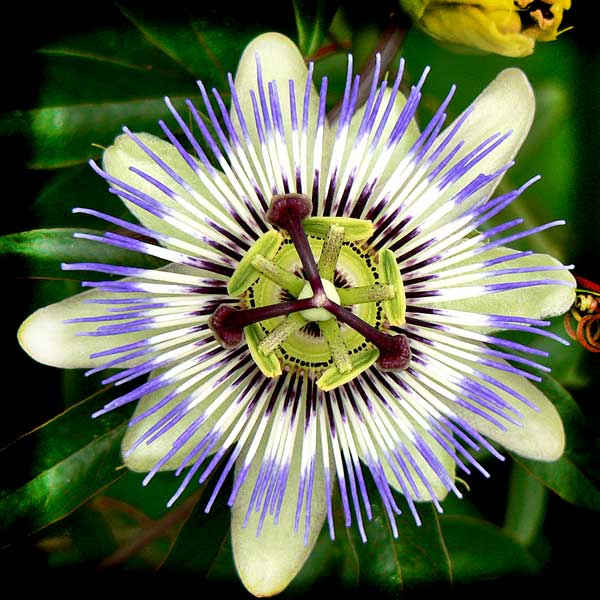There’s a reason your hair responds differently to products. Whether it’s oils, conditioners, or leave-ins, everything comes down to your hair’s unique hair porosity. Understanding hair porosity helps you choose the right products to address moisture, breakage, and more. In this blog, we’ll break down hair porosity, how to determine your type, and how to best work with all porosity types.
What Is Hair Porosity and Why Does It Matter?
Hair porosity refers to how well your hair absorbs and retains moisture. It’s determined by the condition of your hair cuticle, the outer layer of the strand. If your cuticles are tightly packed, moisture stays in. If they’re raised, moisture escapes, leaving hair dry and brittle.
Understanding your porosity helps you determine how your hair reacts to hydration and specific ingredients, so you can choose products that enhance your routine’s effectiveness.
How to Determine Your Hair Porosity
A simple strand test can help determine your hair’s porosity:
- Clean a Strand of Hair: Ensure it’s free from any product.
- Water Test:
- If it floats on top, you likely have low porosity hair.
- If it sinks slowly or floats briefly, you have medium porosity hair.
- If it sinks quickly, you have high porosity hair
Holistic Hair Care for All Porosity Types
Regardless of your porosity type, Certain ingredients like pumpkin seed oil and nettle tea can be beneficial for supporting natural hair growth and scalp health. Here’s how you can incorporate these and other ingredients into your routine for each porosity type:
Best Ingredients & Care Tips for Low Porosity Hair
Low porosity hair resists moisture and tends to feel dry. Because the cuticles are tightly packed, moisture struggles to penetrate. Here are some care tips that support low porosity hair.
- Light Moisturizers: Water-based products like herbal infusions and hydrosols absorb better.
- Argan Oil: A lightweight oil that locks in moisture without weighing hair down.
- Pumpkin Seed Oil: Contains zinc and fatty acids, ideal for nourishing low porosity hair.
- Black Seed Oil: Known for its antioxidants, this oil promotes scalp health and encourages healthy hair growth.
- Slippery Elm Bark: Soothes the scalp and can thicken hair naturally.
- Mango Butter: A lighter leave-in for dense, curly hair that helps lock in hydration without weighing it down.
- Jojoba Oil: A lighter oil that mimics your scalp’s natural oils, great for moisture retention without buildup.
- To remove buildup without drying out your hair, use a gentle clarifying shampoo. Choose sulfate-free formulas with moisturizing ingredients like glycerin or oils. Also, washing with warm water helps open the hair cuticle, allowing for better product absorption.
- Use steam or a warm towel to open the cuticle for better absorption of oils.
- Apply oils sparingly, focusing on lighter options like jojoba oil.
Best Ingredients & Care Tips for Medium Porosity Hair
Medium porosity hair absorbs and retains moisture well and is relatively easy to maintain. It responds well to most products. Learn how to support hair with medium porosty.
- Hydrating Conditioners: Choose conditioners that hydrate without overloading.
- Pumpkin Seed Oil: Supports natural growth and scalp health for all hair types.
- Nettle Tea Rinse: Contains vitamins and minerals to support hair health and natural hair growth.
- Rosehip Seed Oil: Contains fatty acids, revitalizes the scalp, and encourages hair growth.
- Coconut Oil: Locks in moisture and provides nourishment for the scalp and hair.
- Opt for a gentle, sulfate-free shampoo to prevent over-stripping and buildup. You might also consider a clay cleanser or a shampoo with a mild exfoliating scrub.
- Keep products balanced—medium porosity hair doesn’t need too much of anything.
- Herbal rinses like nettle and slippery elm can support scalp health.
Best Ingredients & Care Tips for High Porosity Hair
High porosity hair absorbs moisture easily but struggles to retain it, leading to dryness and frizz. It needs richer oils and heavier treatments to keep hair hydrated. Try these hair care tips for high porosty hair.
- Castor Oil: Seals the cuticle and prevents moisture loss, promoting natural growth.
- Pumpkin Seed Oil: Supports natural growth and scalp health for all hair types.
- Almond Oil: Strengthens hair and helps reduce breakage while nourishing the scalp.
- Olive Oil: Provides deep moisture and seals in hydration for soft, manageable hair.
- Marshmallow Root Tea: Seals in moisture, reducing frizz.
- Nettle Tea: Contains vitamins and minerals to support hair health and natural hair growth.
- Shea Butter: For dense, high porosity curly hair, shea butter is an excellent leave-in option, helping to lock in moisture and keep curls soft and hydrated.
- Use a sulfate-free shampoo with moisturizing ingredients like coconut oil, shea butter, or castor oil. A pre-shampoo treatment can help with detangling. Regular deep conditioning with protein-rich products and sealing in moisture are also important.
- Deep conditioning treatments and leave-ins are essential for lasting moisture.
- Use oils to create a moisture barrier and reduce frizz.
Final Thoughts
All of the herbs mentioned here offer benefits for every hair type and can be used both as soothing teas and nourishing hair rinses for enhanced results.
One of the most powerful aspects of incorporating these herbs, oils, and seeds into your routine is their versatility. By taking them orally as teas or supplements, you can nourish your hair from the inside out, boosting your beauty regimen with internal support for even more noticeable results.
By understanding your hair’s porosity and incorporating these powerful natural ingredients, you can create a personalized routine that nourishes and strengthens your hair.
Want to Learn More From Amour Little?
Check Her Out On Instagram!
You may also be interested in:
- Fermented Rice Hair Treatment with Herbs
- Natural Scalp Treatments and Recipes
- DIY Serum for Vibrant Hair















